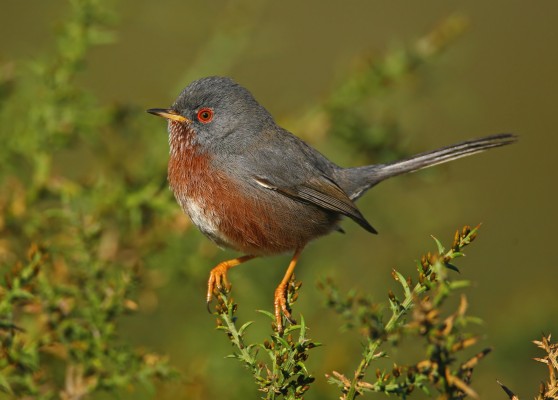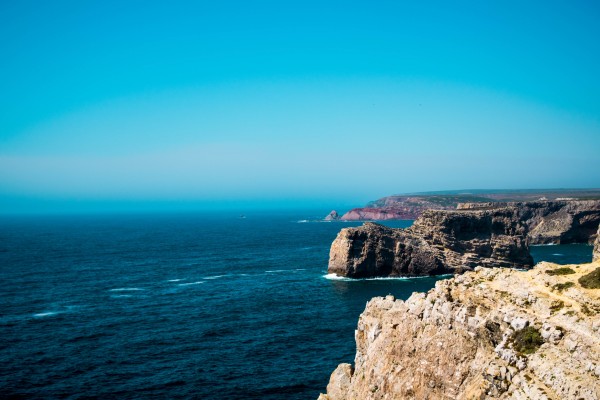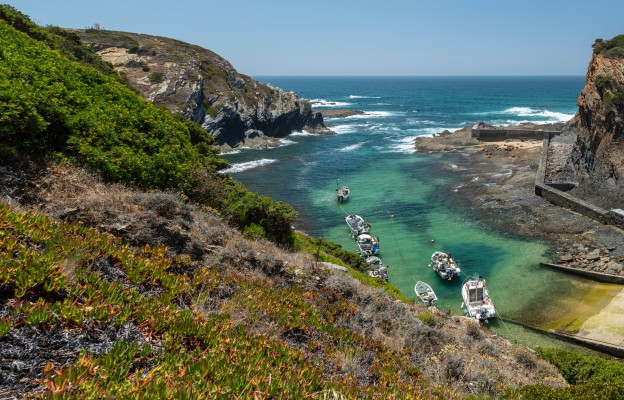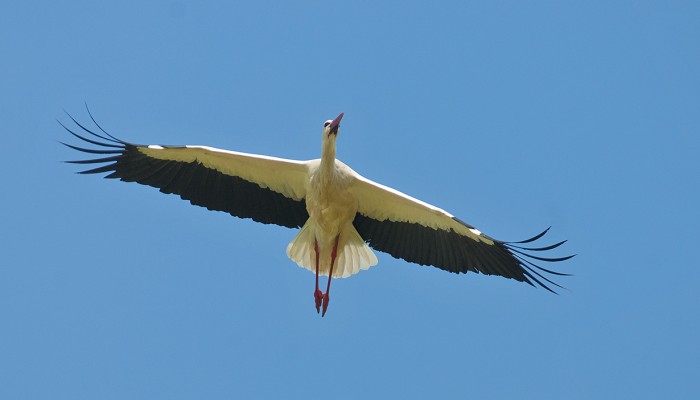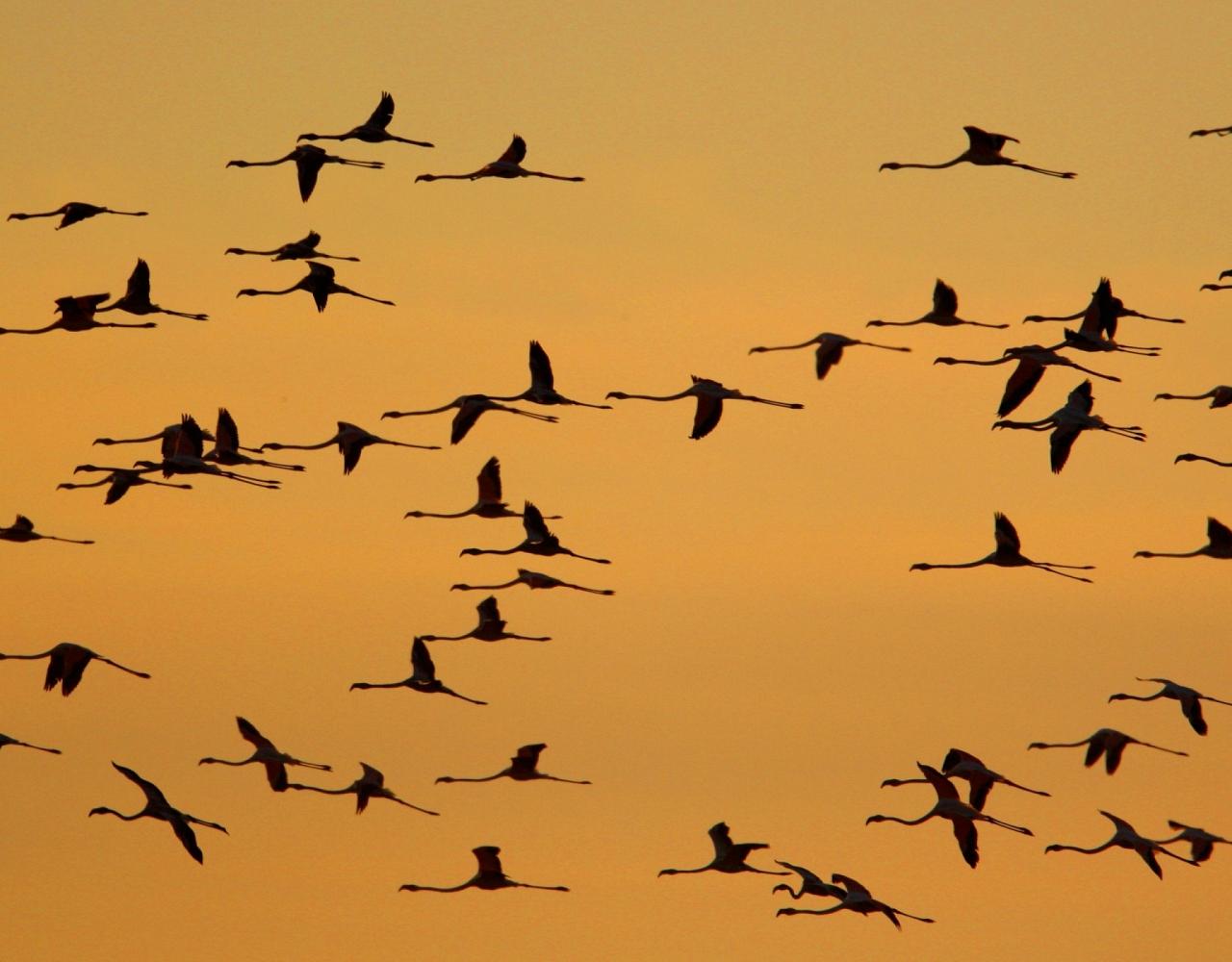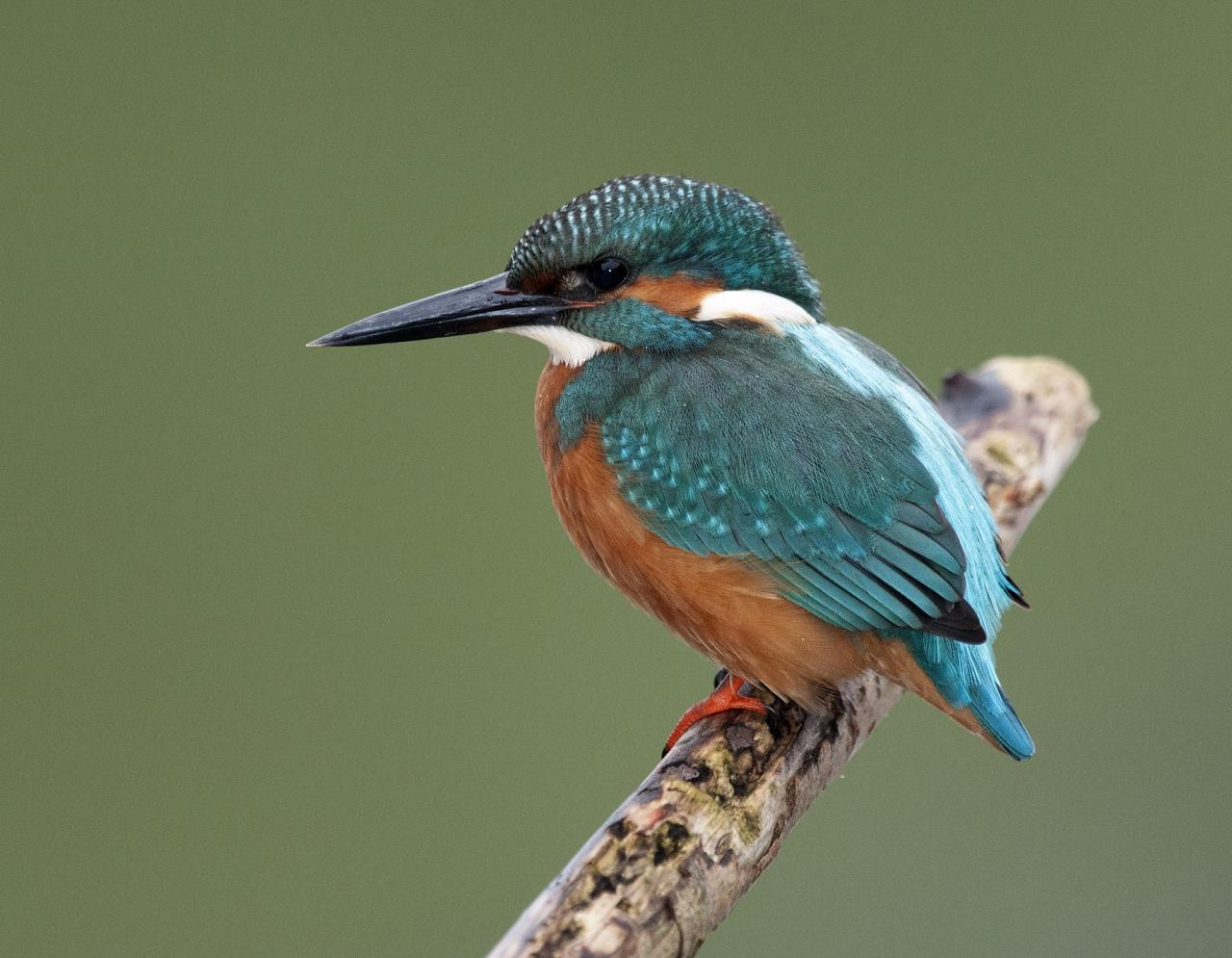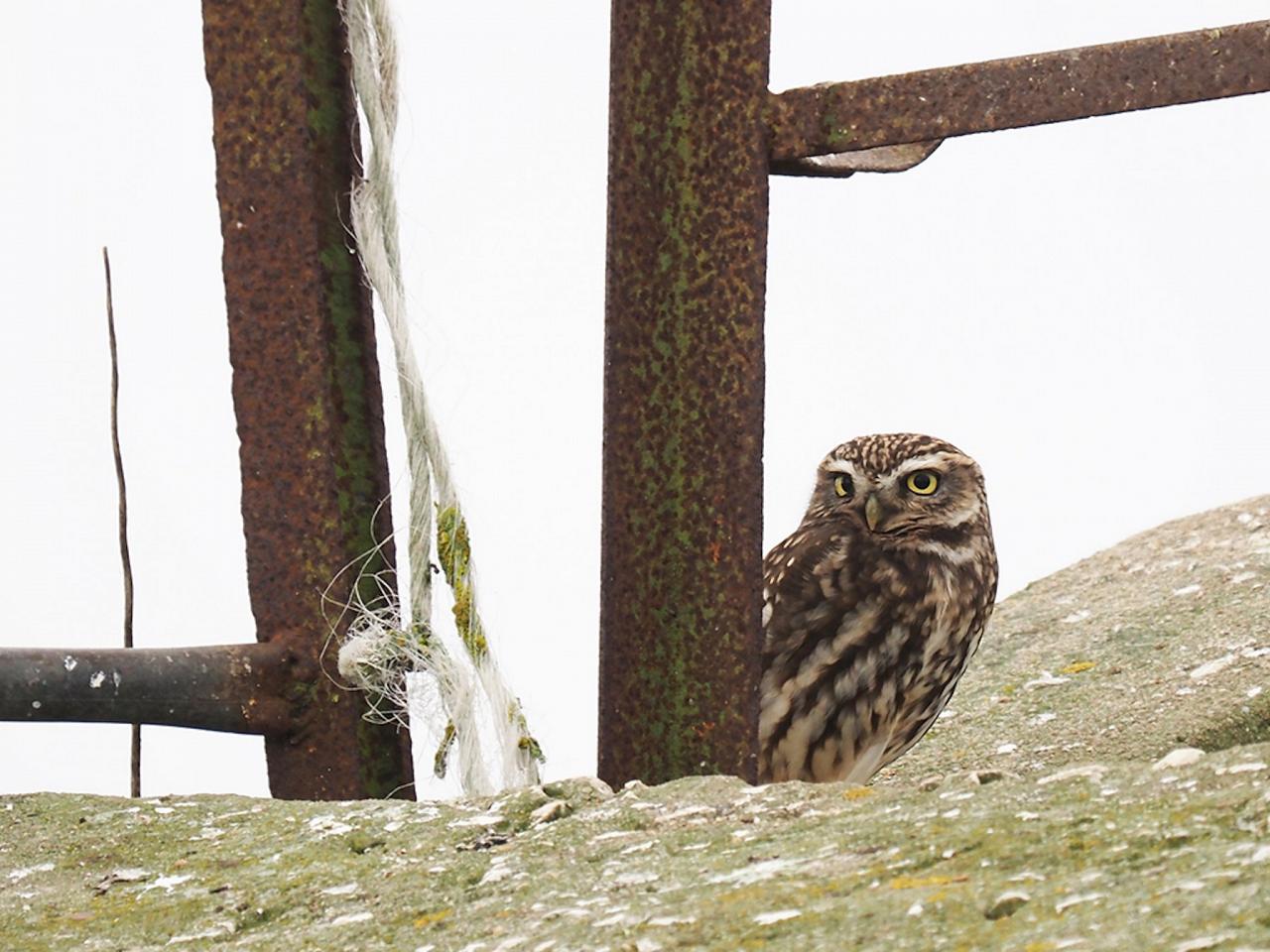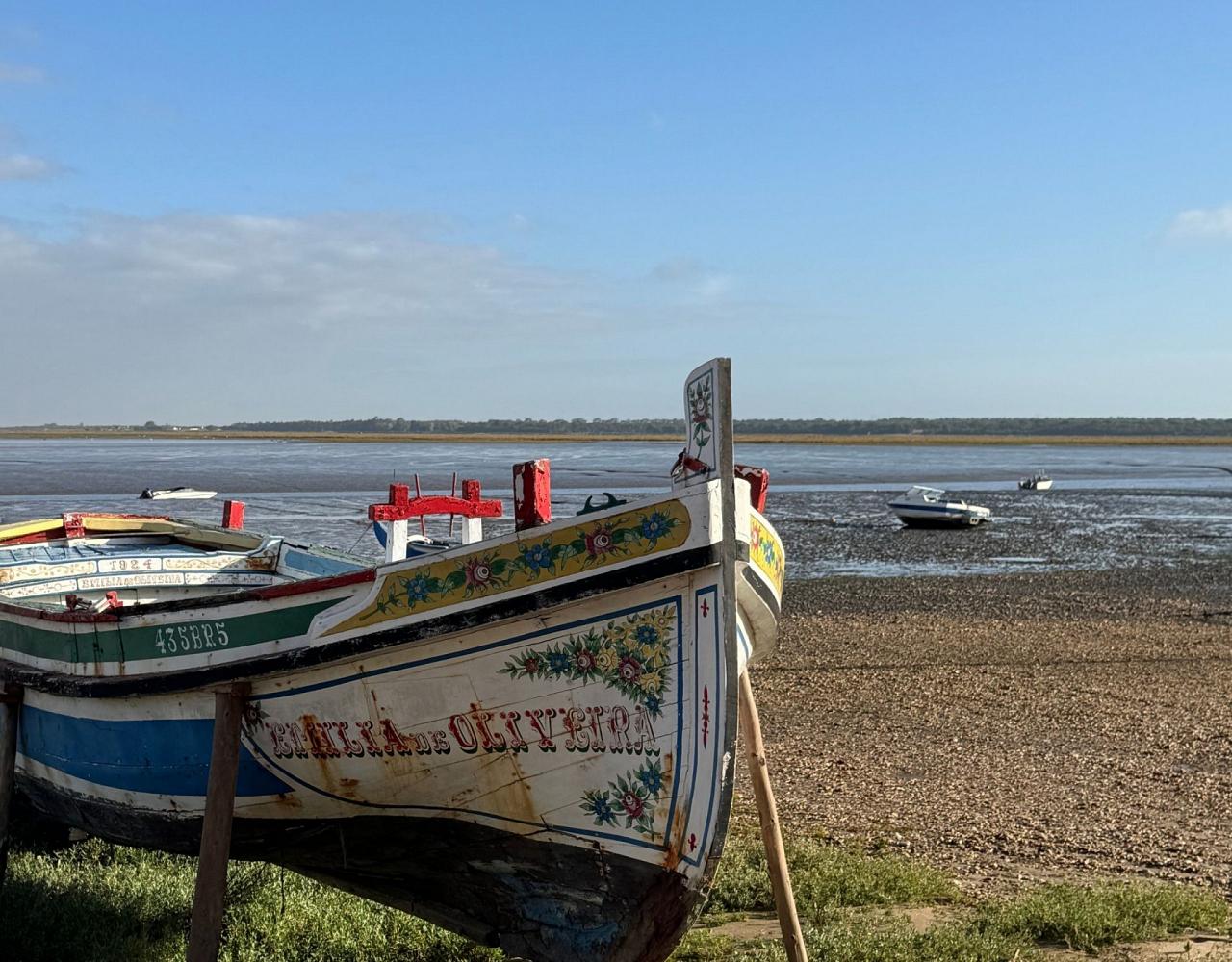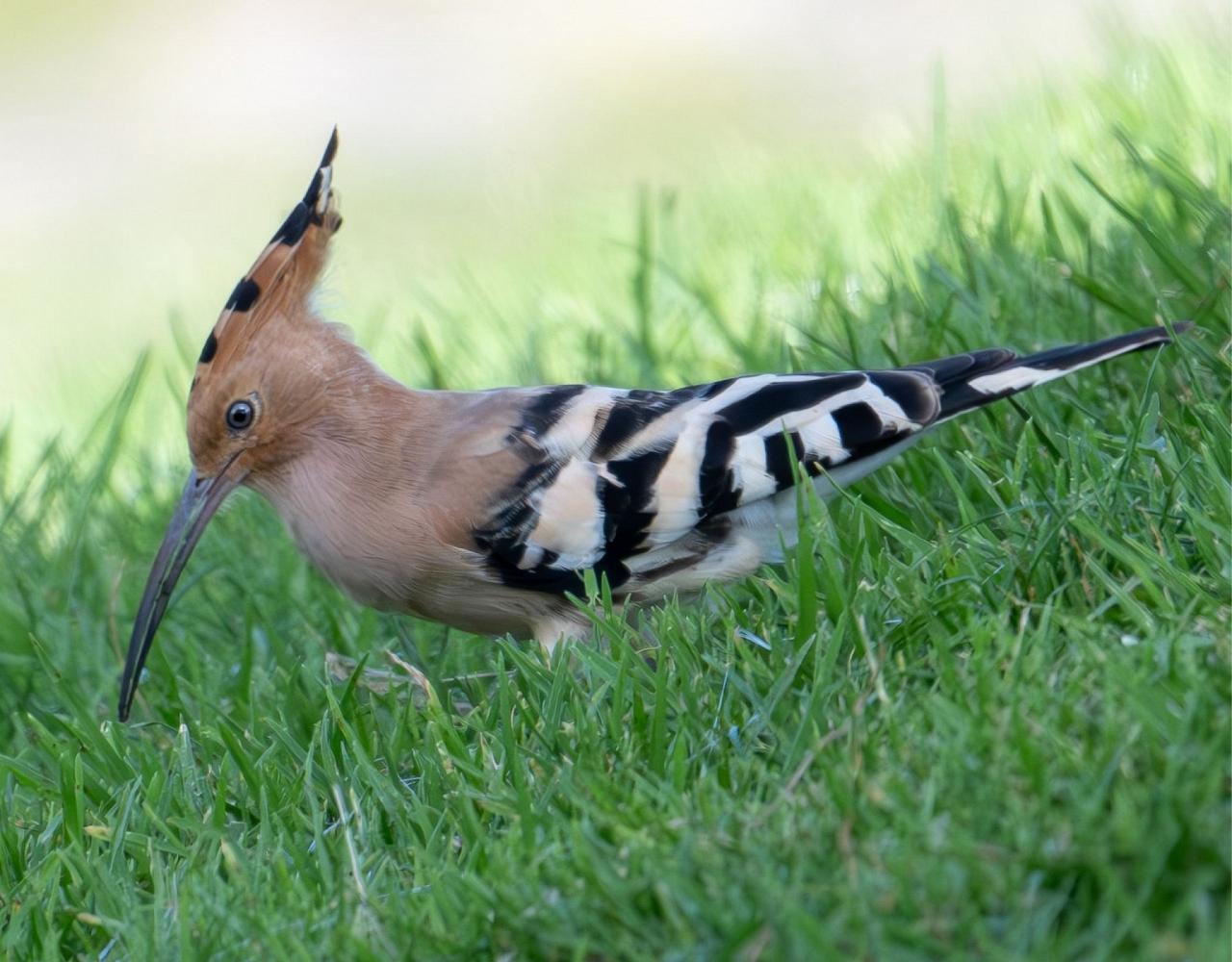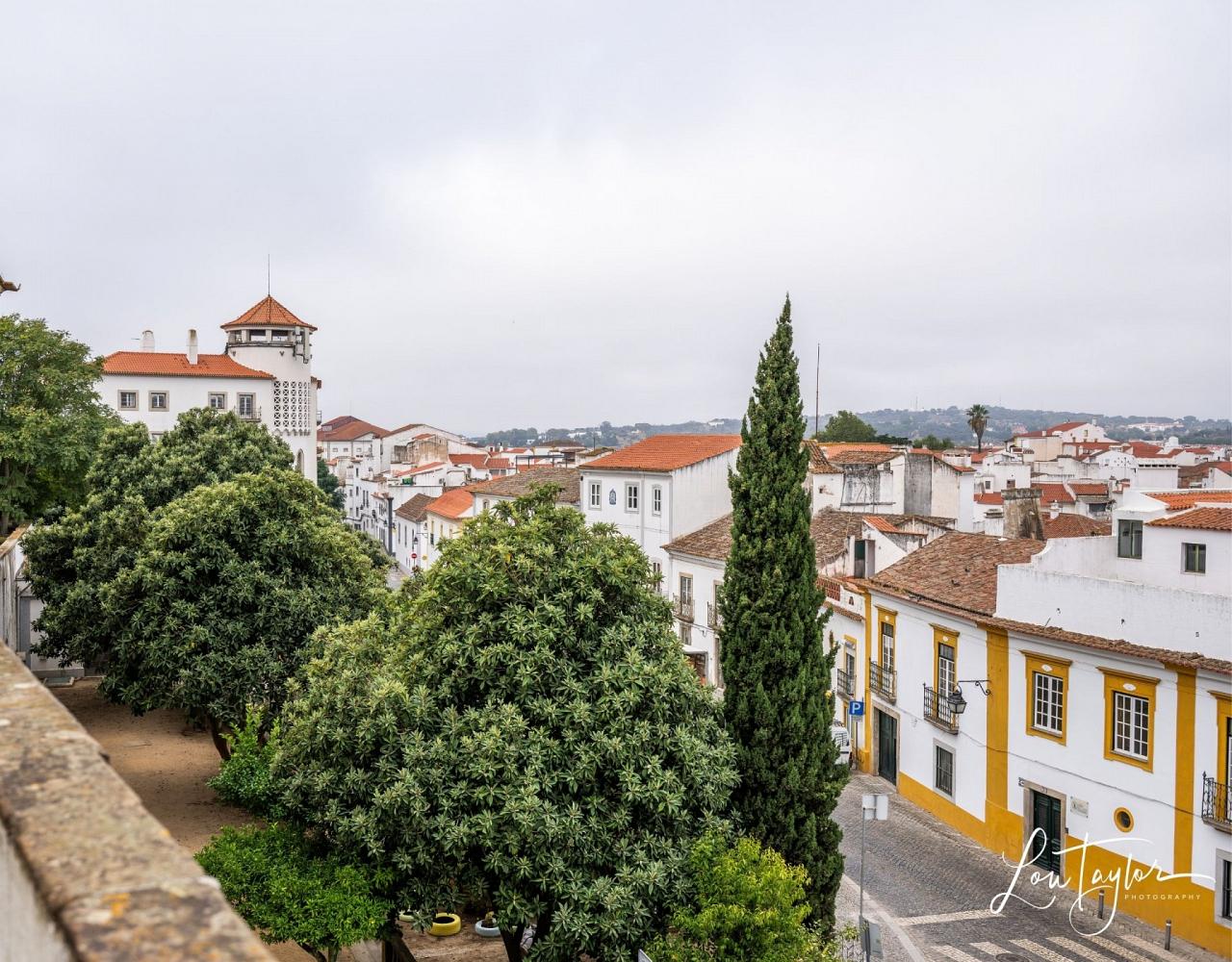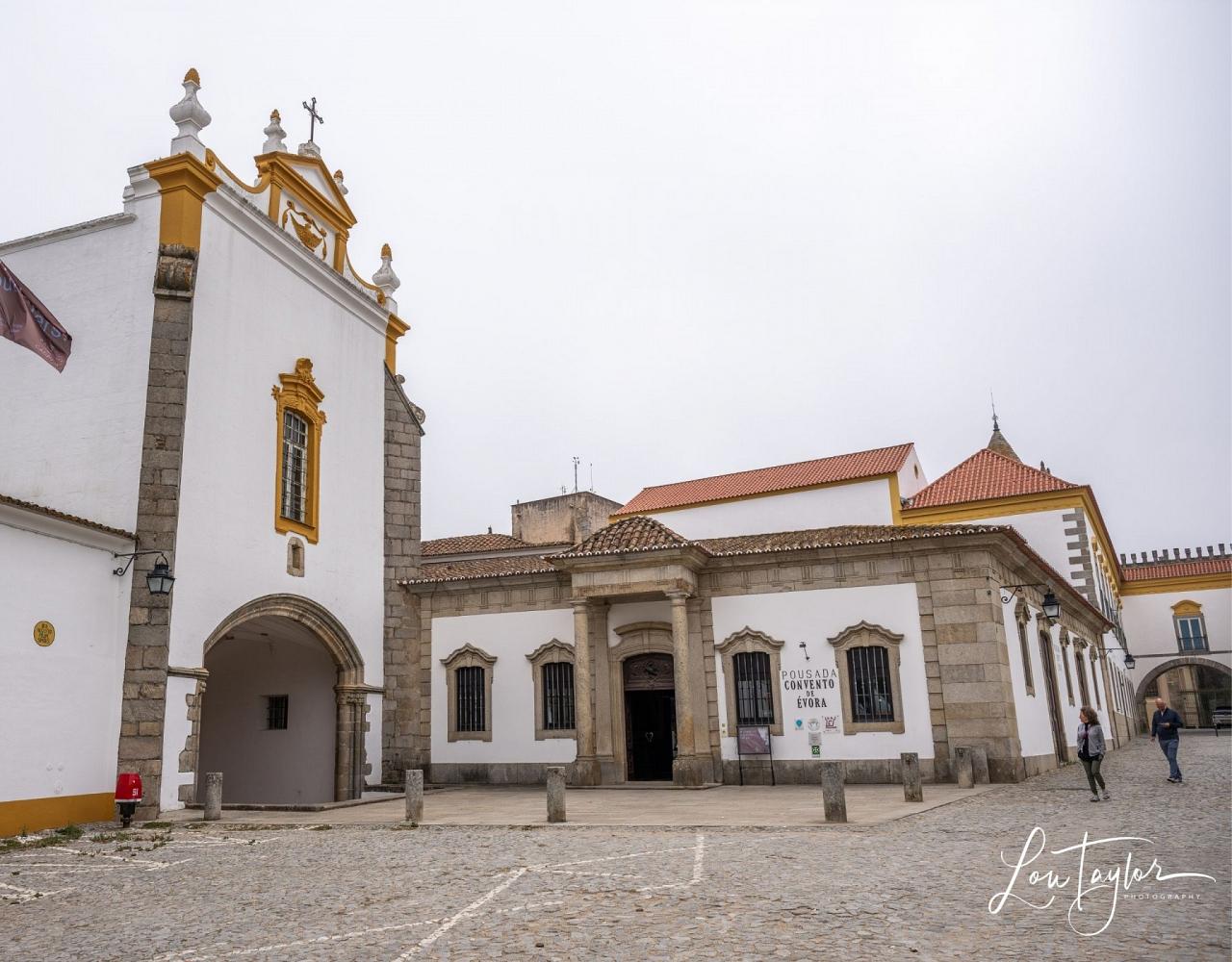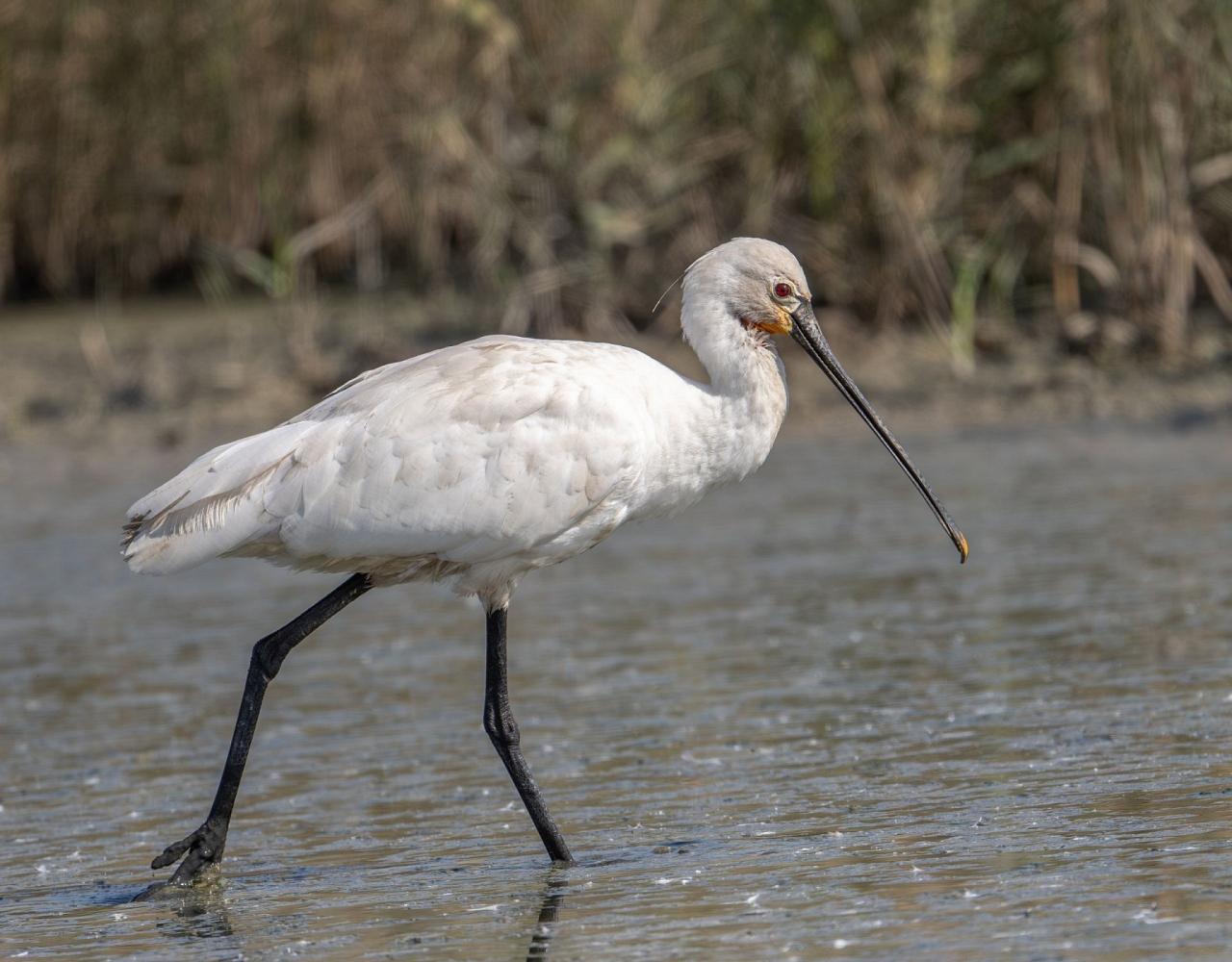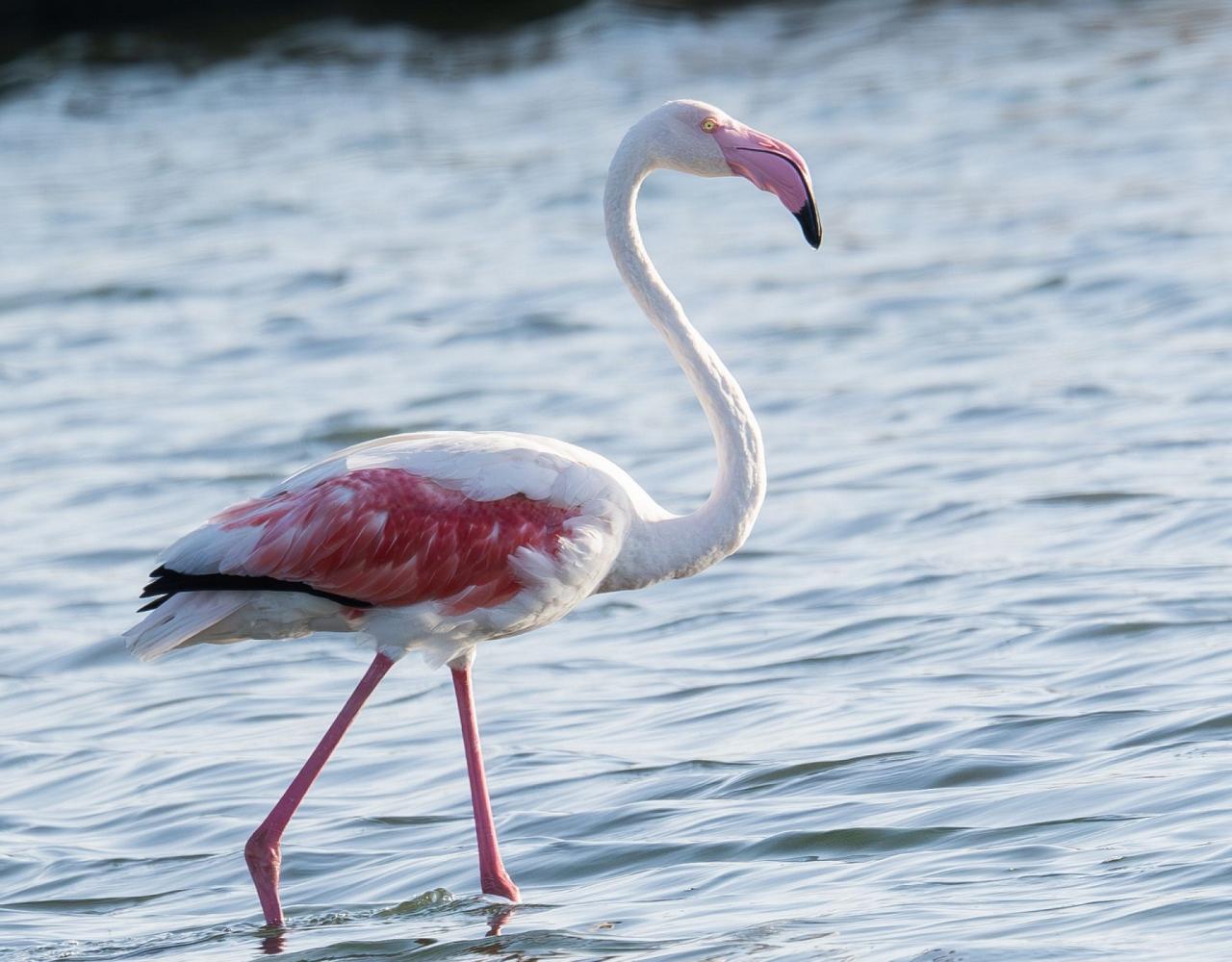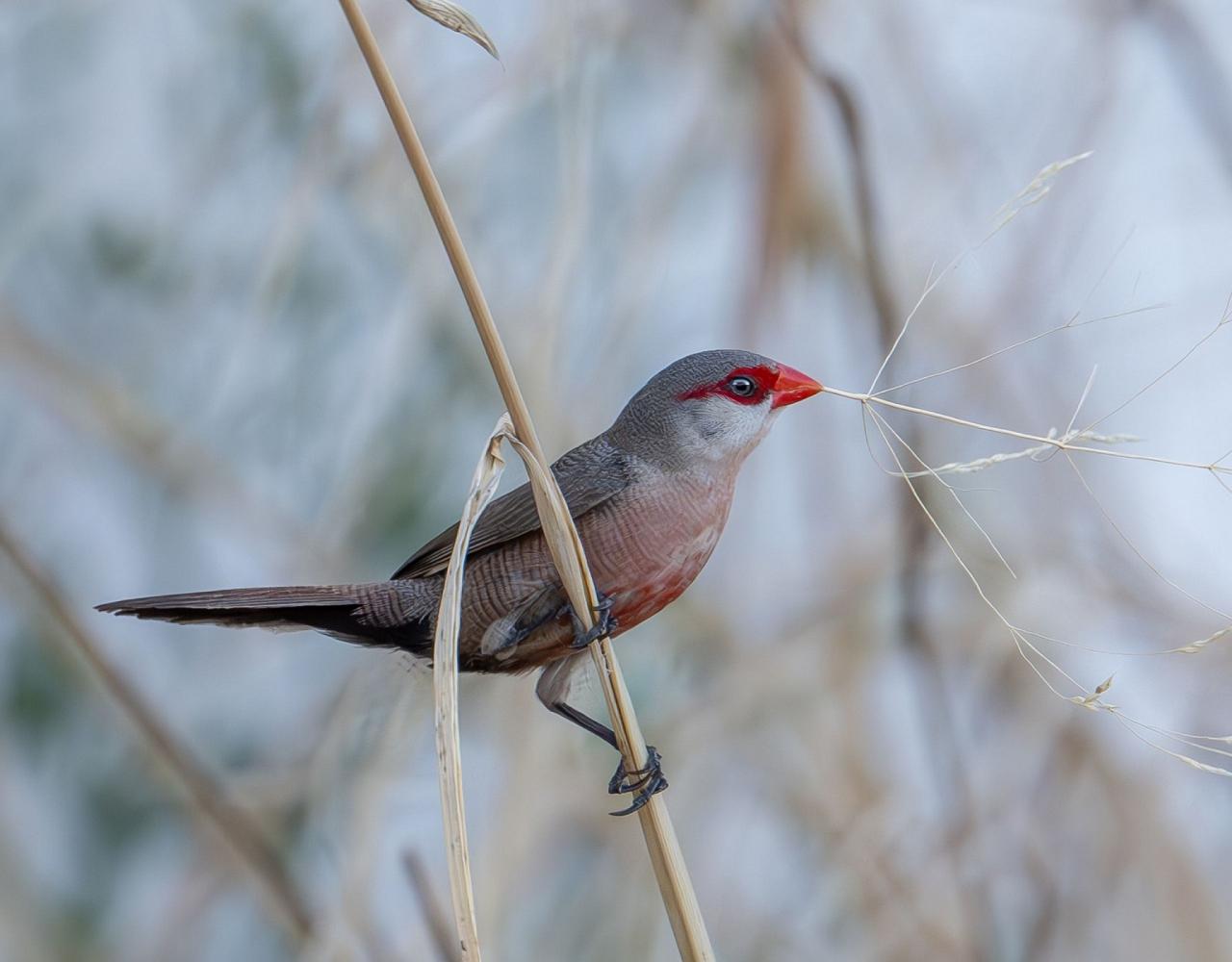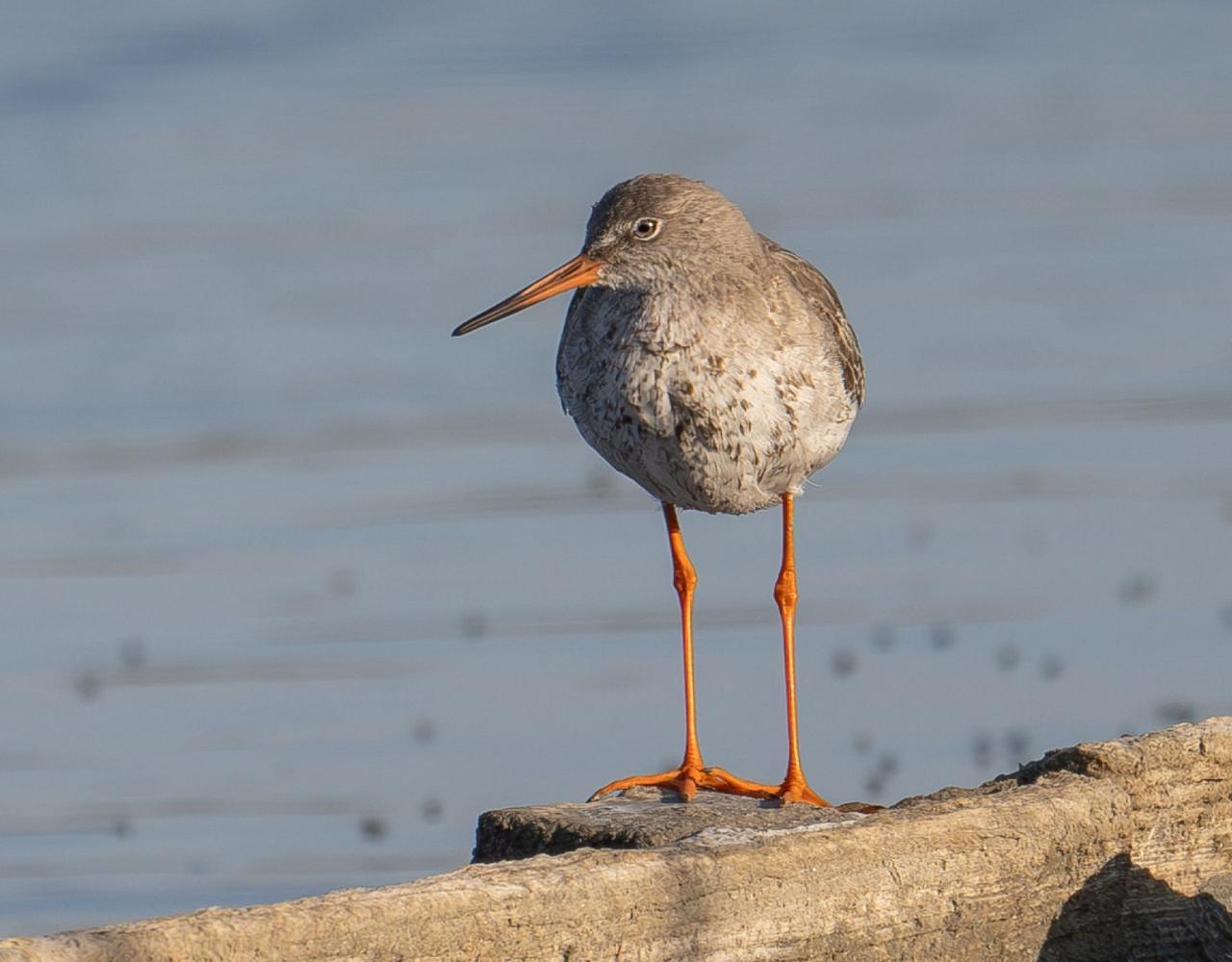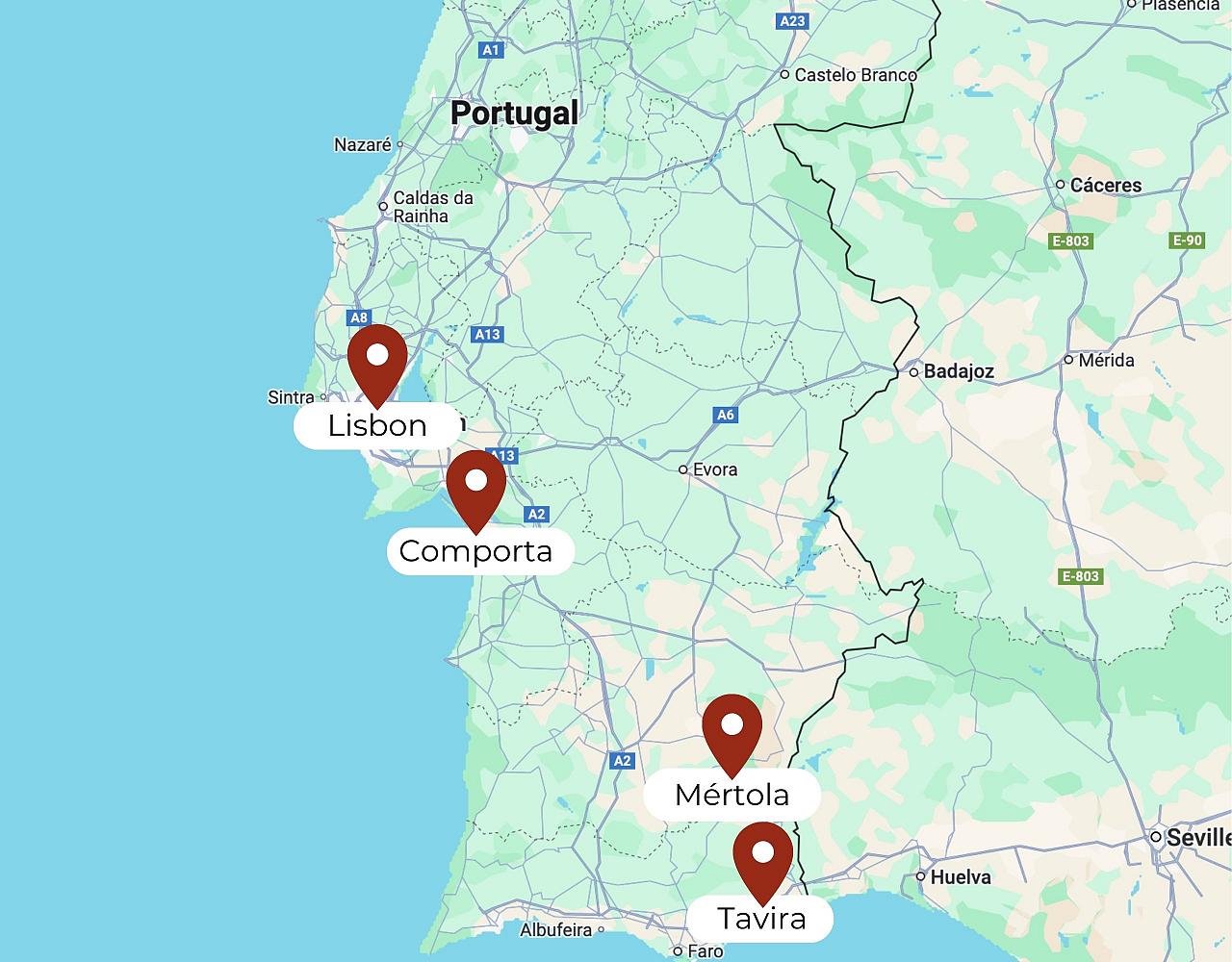Trip Itinerary
Itineraries are guidelines; variations in itinerary may occur to account for weather, road conditions, closures, etc. and to maximize your experience.
Thurs., Oct. 8 Arrivals in Lisbon
Welcome to Lisbon, Portugal. Today we meet you at either the Lisbon Airport or if you’ve arrived early, your Lisbon hotel, for travel to our lodgings in Alcochete (about ten miles from the airport). You may recognize the name of this small city for its association with Europe’s second longest bridge, the Vasco da Gama Bridge, which spans the Tagus River with its impressive cable-stay construction. It is a charming location and gives us close access to the Tagus Estsuary.
Accommodations in Alcochete (D)
Fri., Oct. 9 & Sat., Oct. 10 Two Days Birding & Exploring Lisbon
Portugal offers a fantastic diversity of habitats—and consequently birds—in a relatively small area. It is hard to imagine how many species we find with ease at the Tagus Estuary and the Sado Estuary Nature Reserves—both within a half-hour drive of Lisbon city center and the international airport.
Our time in the Lisbon area will let you experience a variety of habitats within the Tagus Estuary Nature Reserve, including the inter-tidal mudflats and salt marshes of Hortas, the salt pans of Atalaya, Ribeira das Enguias, and Samouco, and the Barroca d’Alva rice fields and pastures. Other interesting sites and habitats in the Tagus Reserve include the open fields, reed beds, lagoons, inter-tidal mudflats and salt marshes of the Ponta da Erva area.
We also have some fun as we explore—enjoy a wine tasting at Companhia das Lezírias, as well as a birding visit to the cork oak woodlands of Pancas, still in the Tagus estuary. Finally, we explore the Sado Estuary Nature Reserve, namely the salt pans, inter-tidal mudflats and salt marshes of Mitrena, Mourisca, and Zambujal.
The protected wetland areas between the Tagus and Sado estuaries may reveal to us: Greater Flamingo, White Stork, Eurasian Spoonbill, Glossy Ibis, Squacco and Purple Herons, Booted Eagle, Black-winged Kite, Little Bustard, Collared Pratincole, Pallid Swift, Bluethroat, Dartford, Savi’s and Melodious Warblers, Iberian Chiffchaff, Iberian Grey and Woodchat Shrikes, Spotless Starling, Rock Sparrow, European Serin, Cirl Bunting, and an excellent selection of ducks, waders, gulls and terns.
Accommodations in Alcochete, across the Tagus River from Lisbon (B,L,D)
Sun., Oct. 11 – Tues., Oct. 13 Three Days of Exploring the Alentejo in Detail
Leaving the Lisbon-area wetlands in the morning, we continue our mix of activities to highlight birding, history and culture. We first head toward Mértola, in the Alentejo region, visiting the city of Évora, a UNESCO World Heritage site prized for its whitewashed houses, Gothic Cathedral dating to the 12th century, and other Gothic and Baroque churches including the unique Chapel of the Bones.
Along our route today, is a famous site, the Almendres Cromlech which contains several megalithic menhirs (standing stone structures) dating back to the 6th millennium BC. This complex has over 95 granite monoliths with a path winding through Association of these structures with others in the area suggest an astronomical function to the structures in alignments for the winter solstice.
Then it’s on to the great Castro Verde rolling plains and the bluffs and hills of the Guadiana Valley Natural Park, including Mértola, Mina de São Domingos, and Alcaria Ruiva. The expansive plains and hilly terrains of these regions support Great Bustard, Common Crane, Red Kite, Montagu's Harrier, Lesser Kestrel, Stone Curlew, Black-bellied Sandgrouse, Great Spotted Cuckoo, European Roller, Calandra Lark, Tawny Pipit, Rufous Bush Robin, and many more birds.
The bluffs and hills of the Guadiana Valley Natural Park host species such as: Black Stork, Iberian Imperial, Golden and Bonelli's Eagles, Eurasian Black and Griffon Vultures, Turtle Dove, Eurasian Eagle Owl, White-rumped Swift, Iberian Green Woodpecker, Eurasian Crag Martin, Red-rumped Swallow, Black-eared Wheatear, Blue Rock Thrush, Golden Oriole, Spanish Sparrow, Hawfinch and Rock Bunting.
Based in the town of Mértola, we can enjoy time to visit the main museums, additional archaeological sites, and specialty shops. It is here that we experience some of the best local foods and wines of our journey. It’s a luxury to have three nights—unpack and settle in!
Here we are near the Spanish border on the confluence of the Guadiana and Oeiras Rivers. The town grew from its start as a fortified medieval village surrounding an impressive castle on its central hilltop. This is an ancient port city again with influence of early Phoenicians, then Romans, Moors and Christians during the Reconquest of Portugal. The whole town feels like a living museum of successive civilizations built upon each other.
Accommodations for four nights in Mértola (B,L,D, all days)
Wed., Oct. 14 – Fri., Oct. 16 On to the Scenic Southern Coastal Region
With just a short 45-minute drive to Tavira, we reach the coastal region of Algarve, a region rich in protected wetland areas and situated on a major fly-way for migrants from Africa, and notable in particular for waders and passerines. We are here at a key time in the migration period, and this area—including Salgados lagoon—offers abundant opportunities to observe migrating birds. Birding stops here will include the complex network of canals, saline flats and salt pans of the Castro Marim Nature Reserve and the Tavira area of Ria Formosa Natural Park. Other habitats of Ria Formosa including dunes, open water, inter-tidal mudflats, salt marshes, salt pans, reed beds, lagoons and pine in the regions of Olhão, Quinta do Lago, and Ludo.
During our time here, we also visit the Sagres and Cape St. Vincent areas, Cape St. Vincent being a natural bottleneck for migration and a splendid place to search for the endangered Balearic Shearwater as well as a few other species. A tour highlight experience is a pelagic trip off Sagres. Just a few miles offshore, we start to understand why the Algarve is considered such a crossroads, with birds moving along the coast west to east (Atlantic to Mediterranean) and north to south (Europe to Africa). Some of the species we may find during the boat trip include: a variety of shearwaters (Great Cory’s, Scopoli’s, Sooty, Manx and Balearic), smaller Wilson’s, Leach’s and European storm-petrels (Wilson’s, Leach’s and European Storm Petrels) and predatory skuas—all three being possible (Pomarine, Arctic and Great). We keep our eye open for rarities such as Audouin’s Gull amid the more regularly seen and sometimes numerous Northern Gannet, Kittiwake and Lesser Black-backed Gull.
Ria Formosa Park and Castro Marim, with their intricate maze of inlets and lagoons, are unique birding sites in Portugal for finding rare and highly localized species such as Audouin’s and Slender-billed Gulls and Lesser Short-toed Lark. These are also excellent spots for getting close views of scarce species like Little Bittern and Purple Swamphen. Common bird species in the Algarve include Little Owl, Red-necked Nightjar, Eurasian Hoopoe, Common Kingfisher, European Bee-eater, Sardinian and Spectacled Warblers, and Iberian Magpie.
Tavira, our base for three nights, dates back to the Bronze Age. Today it is a comfortable, small city astride the Gilão River at its junction with the Atlantic Ocean, Tavira is a delightful base from which to explore. It holds Roman Moorish and Christian influences. In its center, a medieval castle affords us great city views of old and new, whitewashed walls, tile roofs—all with the Atlantic Ocean behind. Across from it, Tavira Island has a long, sandy beach, plus salt pans that attract flamingos, spoonbills and other wading birds.
Accommodations for three nights in Tavira (B,L,D, all days)
Sat., Oct. 17 Return to Lisbon | Estuary and Ricefield Birding
Finally, we will return to Lisbon, using the travel day to explore inter-tidal mudflats, salt marshes and rice fields of Comporta and Carrasqueira, part of the Sado Estuary Nature Reserve. Enjoy a delicious final dinner with time to recount our highlights of the journey.
Accommodations in Lisbon (B,L,D)
Sun., Oct. 18 Departures
Plan to leave at your convenience today but remember, for International flights, it is recommended that you be at the airport three hours prior to your flight. (B)
Travel Details
Please plan to make air travel plans only after the minimum group size has been met. We will send you a confirmation email as soon as the trip has been confirmed.
Arrival and Departure Airport: Humberto Delgado Airport (LIS) in Lisbon
Arrival Details: Plan to arrive October 8, 2026, at your leisure. If you want to join the group for dinner, plan to arrive in time for dinner around 7 PM.
Departure Details: Plan flights for October 18, 2026, at your leisure
Travel Tip: You may wish to arrive a day early and rest up from your travels. The easiest option would be to book an early night at our first night tour hotel, the Praia do Sal Resort. Our hotel is about 25 minutes from the airport in Alcochete and can be reached via taxi or Uber. You can also work with your travel agent to find a hotel to suit your needs. If you want to explore Lisbon, there are plenty of fun things to do! Oceanário de Lisboa is one of the largest aquariums in Europe and has over 450 different species. If you’re interested in art, then a visit to the Calouste Gulbenkian Museum is a must-see in Lisbon. It has works spanning 5,000 years and is considered one of the most important private art collections in the world. Or if you want to stretch your legs after a long flight, Lisbon is a great city to wander around the cobbled streets and check out the delicious restaurants, architecture, and shops. And don’t forget to try the pastéis de nata, a delectable traditional Portuguese pastry.
There is an official taxi station outside the airport, which is signalized; official taxis are black and green. Never accept offers of taxis from people inside the airport soliciting taxi service. Only get into a taxi after a reasonable price is agreed to. For hotels in Lisbon, it should not be above 30-40 € and for Alcochete, it should not be above 50 €.
Hotel Recommendations: If you wish to arrive early and prefer to stay in Lisbon, we recommend: Janelas Verdes. Convenient to just stay on, and it is in a great location. Lisboa Pessoa Hotel is another great choice in the city.
Entry Requirements: See "Essential Information" section under the "Know Before You Go" tab.
Essential Information +
This information is important for being prepared for your journey; we want you to have Read more
This information is important for being prepared for your journey; we want you to have the best experience possible. If you only read one section, this one is key!
Ahead of Your Tour
- Make sure your passport is valid for six months AFTER your return date from Portugal. We advise having at least one blank passport page per entry stamp. See "Passports, Visas & Documents" section below for details.
- Visas may be required of US citizens in 2025. Expected changes to entrance requirements in Europe have been delayed until 2025. More information is available at European Travel Information and Authorization System (ETIAS) website.
- Please check current CDC recommendations for travel to Portugal and consult with your doctor about general travel vaccinations you should have as precaution for travel. See the “Health and Inoculations” section below.
- Travel insurance in case of serious medical emergency is strongly recommended. Full health coverage and repatriation is available through Allianz Travel Insurance.
- Soft sided luggage/duffel bags are easiest for packing the vans. Pack essential medications in your carry-on luggage, as well as one day of clothing and optics in case of luggage delay.
Passports, Visas & Documents
Guidelines and regulations can change. It is always advisable to double-check the country’s documentation requirements 60-90 days ahead of traveling. Information for U.S. citizens can be found at https://travel.state.gov/content/travel/en/international-travel/International-Travel-Country-Information-Pages/Portugal.html. If you are from another country, please contact the tour destination’s embassy website for guidelines.
Passport: You must have a passport valid for six months AFTER your scheduled return to the U.S. Please check that expiration date! Your passport should have at least one blank page per entry stamp. The blank pages need to say “Visas” at the top. Pages marked “Amendments and Endorsements” will not be accepted.
Visa: At the time of writing, a tourist visa is not required of US citizens for stays of this length. Requirements requiring visitors from more than 60 visa-free countries (including the U.S.) to get a travel authorization when entering Europe for brief stays have been delayed until 2025. Learn more at European Travel Information and Authorization System (ETIAS) website.
As a precaution for lost or misplaced documents you carry on your person during travel, we highly recommend you keep hard and digital backup copies on your phone (either photo or PDF scan), as well as a hard copy left with your emergency contact at home. The recommended important documents to copy include, but are not limited to; your passport ID page, travel visa, the front and back of your credit card(s), the airline barcode on your luggage. This will greatly expedite getting new ones if necessary – we hope everyone will always keep travel documents close so that losing them will not be an issue.
General Health & Inoculations Information – Be Prepared!
Health requirements for entry to any country can change. It is always advisable to double-check the country’s health requirements and recommendations 60-90 days ahead of traveling. A helpful website for planning is the Centers for Disease Control and Prevention (CDC) website for Portugal or by phone (800) CDC-INFO or (800) 232-4636.
We will share your health information with your guide. This information will be kept confidential but is very important as we want to be best prepared in case of medical emergency. Bring any prescription medications with you and it’s best if you have a copy of the prescription in case of loss. A supply of standard over the counter medications for common ailments is recommended.
Prescriptions: It is a good idea to pack any meds you take regularly in your carry-on luggage. Bring an extra pair of glasses or contact lenses. Bring an adequate supply of any prescription medications you use, a copy of the prescription and a list of generic names of your medicines as “back-up” in case it is necessary to purchase drugs while abroad. You’ll want to keep medications in their original, labeled containers.
Allergies: To be prepared for environmental triggers to allergies or breathing difficulties, please bring your allergy and/or asthma medication(s). If you have severe allergies talk to your doctor about carrying an EPI pen and notify your guides. It is also recommended to carry with you an up-to-date record of known allergies, chronic medical problems and Medic Alerts so that, if necessary, emergency treatment can be carried out without endangering your health.
Common Ailments: We recommend that you bring a travel-sized first aid kit and a supply of standard over-the-counter medications for prevention or treatment of common ailments (such as diarrhea, constipation, stomach upset, cough, congestion, head or body aches, motion sickness, insect bites and sunburn); as well as ointments, moisturizer, sunscreen, oral rehydration salts, band-aids, moleskin for blisters, cotton swabs, nail clippers, and tweezers, etc.
Weather & Climate
Portugal generally has cool, dry autumns, though the precipitation begins to increase this month. Highs average in the low-70s°F, and lows in the mid-50s°F., with comfortable humidity. Though most days are sunny, rain and wind are possible, but less frequent the further south you travel. The southern coast is cooler and west coast and inland are warmer. Come prepared with layers of clothing, including a rain jacket that can double as a windbreaker, and an umbrella. Bring walking boots for use in the day and more comfortable shoes for meals and relaxing.
Packing, Clothing & Laundry
Please, pack light. And please pack your personal medication, airline tickets, passport, binoculars, camera, and other essential items in your CARRY-ON. Dress is very informal and comfortable throughout the trip. You may wish to change for dinners, but casual dress is suitable at all locations.
Dressing in layers is the best way to be comfortable. Long-sleeved shirts and long pants make ideal field clothing, as they are more protective from sun, insects, and vegetation. Choose clothing you don’t mind getting dirty – and things that are comfortable and easy. Please avoid white or brightly colored outerwear for the field.
Please consider bringing a water bottle or two; while we will have water at all times during our trip, an enormous amount of plastic waste is generated by beverage containers that can be avoided if you bring a bottle to refill.
Laundry services can be arranged at some of our hotels, those where you stay multiple nights. But it is most convenient if you are content with hand laundry.
Spending Money
The EURO is the official currency of Portugal. For the current exchange rate, please refer to an online converter tool like www.xe.com, or your bank. We advise you carry a mix of different types of payments, such as the local currency, an ATM card, and a credit card.
If you wish to exchange money before you leave on your trip, you may be able to do so through your bank or an exchange office. Possible locations are your departing airport in the U.S., a travel agent, or a AAA office. It may be helpful to arrive with some local currency just in case you run into an “out of order” ATM or a local bank holiday.
You can also exchange your money in country. The easiest way is to withdraw funds from a local ATM. ATMs are widely available in both Portugal and will typically offer you the best exchange rate. The ATM will give local money and your bank will convert that into US Dollars. Many banks charge a fee of $1 - $5 each time you use a foreign ATM. Others may charge you a percentage of the amount you withdraw. Check with your bank before departure. You must become familiar with how to use your ATM card and PIN number ahead of the journey. Hotels can also change money. If you plan to exchange cash in country, bring large U.S. bill ($50 or $100) in good condition that will give you the better rate when exchanging to local currency.
Credit cards are commonly accepted in Portugal. You will want to bring more than one brand of card (one Visa, and one MasterCard; American Express is less accepted), if possible. A EUROCARD or ACCESS sign displayed means the establishment accepts MasterCard. Not every shop will accept every card. Some smaller shops and restaurants require cash, so it is always a good idea to ask before making a purchase. Also, we recommend that you advise your bank or credit card company that you will be traveling to Portugal to avoid questions, card freezes, or charges. If you have a choice of cards, bring one with no foreign exchange fees. Traveler’s checks are not widely accepted and can be difficult to exchange. We do not advise you use them.
Many people ask how much money to plan to bring for spending money. Part of that depends on how much you want to shop. Typical items people purchase include local souvenirs and T-shirts, artworks, drinks before or with dinner, maps, and natural history books.
Gratuities
Tipping throughout the tour is at your discretion. Some guidelines follow. At larger (mostly city) hotels, tip maids and bar service as you would at home. At eco-lodges, there is typically a staff tip box in a public area; the going rate per person is $6-$10 a day, which is shared among staff for maid service, and general staff service at the lodges. Gratuities for group meals are already included. Your Naturalist Journeys host will take care of smaller tips such field trip services by boat drivers, night drive outings, single activities. Your additional tip is encouraged for birding tour guides and drivers who are with you for several days or the full trip; $10-$15 per day per guest is standard for guide service, and half that for a driver. If you have more than one local guide at a location, they will share the daily amount. We encourage tipping for the local teams hosting you; anything extra for your Naturalist Journeys host is at your discretion.
Please note that these suggested tips are quoted in U.S. Dollars. You will want to convert and tip in EUROs.
Cell Phones & Internet Service
Your guide is well connected and can help if any urgent communication need arises. However, it is highly recommended that you travel with a CELL PHONE, if only as a precaution for the unfortunate occurrence of a medical emergency during an outing and needing swift accessibility to critical personal or medical contacts.
You can make international calls from most of our hotels. The country code for the USA is 1.
International calls to the U.S.: Dial 00 + (1) +country code+ area code + number
To call Portugal, the USA exit code is 011, then dial 351 + phone number
Check with your wireless provider to see if your phone and service will work in your destination country. Ask for “international roaming” to be activated on your phone or purchase a travel pass through your carrier. Or you can buy a local SIM card at the airport and insert this in your mobile phone (just make certain your phone can accept one).
If your phone can connect to Wi-Fi, you may be able to make voice and video calls free of charge. Please contact your cell phone provider for further details. Another option if you have access to Wi-Fi, is to download and use smartphone apps like Skype, WhatsApp, or Viber to send text messages, and make voice calls, or video calls. Many smartphones, tablets, or laptops come with one of these apps pre-installed or you can download for free. If bringing a laptop or tablet, get a good dustcover to protect it at all times.
Make sure if you do NOT want to use your cell phone that you turn off your cellular data. You could incur huge charges if you are not on Wi-Fi. Putting your phone in airplane mode if you mainly use it for photos will save the battery as well.
Please refrain from taking or making cell phone calls in the vehicles when traveling with other passengers, unless it appears to be an emergency. This disrupts other guests, plan on cell phone call use on your own time.
Electricity
Portugal uses northern European standards, with voltage at 230V, higher than in the United States (120V), and a frequency of 50 Hz. Electrical sockets (outlets) are primarily "Type F" and accept the standard continental European dual round-pronged plugs.
You will most likely need to bring a power plug adapter, and a voltage converter to use appliances or devices from the U.S. that do not automatically detect and convert voltages. To be sure, check the label on your appliance. More information can be found at power-plugs-sockets.com.
Time
Portugal is in the Western European Time Zone, which is 5 hours ahead of New York (Eastern Daylight Time). Portugal does observe Western European Summer Time (or Daylight Savings Time). A great website if you want to tell someone to check ahead of calling you is www.timeanddate.com.
Questions?
Please contact Naturalist Journeys by email at clientservices@naturalistjourneys.com or telephone at our office: (520) 558-1146 or toll free: (866) 900-1146 if you have any questions. Many thanks for traveling with us and we hope you enjoy your journey!
Pace & Protocols +
Pace of the Tour & What to Expect
You will receive a Schedule-at-a-Glance and list of Read more
Pace of the Tour & What to Expect
You will receive a Schedule-at-a-Glance and list of hotels (our eContact List) a few weeks before your departure. This will serve as an outline for each day and alert you to any recent changes made in the schedule or to our hotels, if needed.
Our journeys are set up to follow the rhythm of nature. Our focus is on birding and nature; we offer full, well-planned field days and often get up early for that magical time around dawn. We generally follow the published itinerary, but we stay flexible to the weather, wildlife opportunities and the interests of the group. Your guide will keep you apprised of the next day’s schedule at each evening meal, noting what to bring and what to prepare for. Questions and/or concerns are welcome.
The pace of our Naturalist Journeys tours is moderate; to fully participate you should be able to get in and out of vehicles several times a day, and walk 1-3 miles over uneven terrain. It is important to participate with a flexible attitude as adjustments may be made in our schedule to make the most of our time in the field or for other purposes at your guide's discretion. We are not a “listing” bird company that drills down on target species, but at times we do wait for those special species unique to the places we visit. During the day, we take time to stop for photos and for educational opportunities to learn about conservation projects, landscapes, and geology. We appreciate other taxa as well as birds, with mammals often the biggest draw but plants and butterflies are also very popular. Our clients often lend their own expertise to the mix.
We like to make meals a fun and memorable part of the experience, too. Breakfasts are often at hotels, and we carry snacks, fruit, and water in the vans each day. Lunches are a mix of picnics in the field (weather dependent) and a chance to dine with locals at small cafes and restaurants. For dinner, we pride ourselves in our homework to keep up with the best choices for dining, choosing restaurants with atmosphere that specialize in local foods. On occasion we keep dinner simple to go back out in the field for sunset wildlife viewing or night walks. In some remote locations, our choices are limited. If you are tired, room service for dinner may be an option you can choose.
Naturalist Journeys International Trips: Guide Role
Naturalist Journeys supports ecotourism and the development of excellent local guides. Once we know our international partners and guides well, we can send out small groups working directly with these trusted partners, adding a Naturalist Journeys guide to assist the local expert when we have a group of 6-7 or more. This helps us keep your costs down while retaining tour quality. The local guide is your main guide. You can expect your Naturalist Journeys guide to be well-researched and often they are experienced in the destination, but their role is not to be primary, it is to help to organize logistics, help you find birds, mammals, and interesting other species in the field, keep reports, help facilitate group interactions, and to keep the trip within Naturalist Journeys' style. Local guides live in the countries we travel to, know the destinations intimately, and are often the strongest force for conservation in their countries. They open many doors for us to have a rich experience.
Smoking
Smoking is not permitted in any vehicle or in any situation where the group is participating in an activity together, such as a vehicle excursion or a guided walk. Please respect all designated smoking areas at hotels and restaurants.
Transportation
As a courtesy to each other, we ask that all travelers please rotate seating. On international trips we may all be in one small bus, on some trips we are in vans, particularly the roomy Sprinter Vans when available. Some areas require us to be in smaller 4-wheel drive or safari vehicles. Rotation allows you to sit with different drivers and alternate front and back seating.
Photo Release & Sharing
We take many group photos and will share photos with the group. And after your tour, we will organize a chance to share photos via Dropbox or Google Photos. Please note that this is our policy and if you prefer to be excluded, we need to know ahead of your tour.
By registering for this tour, you agree to grant to Naturalist Journeys and its authorized representatives’ permission to record on photography film and/or video, pictures of my participation in the tour. You further agree that any or all of the material photographed may be used, in any form, as part of any future publications, brochure, or other printed materials used to promote Naturalist Journeys, and further that such use shall be without payment of fees, royalties, special credit or other compensation.
Travel Insurance
You are traveling in remote areas. Naturalist Journeys strongly recommends you have full medical and evacuation insurance from a company such as Allianz, for all international travel. If you do not have medical coverage or evacuation coverage on your existing travel insurance policy or for some reason elected not to take that out, we advise getting an evacuation plan with Global Rescue, World Nomads, Medjet, Allianz (they can do evacuation only) or a similar company. These plans are typically $300-$400 for a year for multiple destinations. This coverage may be a part of a larger Travel Insurance policy but can also be purchased on its own.
Questions?
Please contact Naturalist Journeys by email at clientservices@naturalistjourneys.com or telephone our office: (520) 558-1146 or toll free: (866) 900-1146 if you have any questions. Many thanks for traveling with us and we hope you enjoy your journey.
There are many titles of interest for Portugal; the following are a few that we have enjoyed that can get you started.
Top Picks
Birds of Europe
Merlin App – Portugal Pack. A phone-based birding app from Cornell University Laboratory of Ornithology. Before departing the U.S., download the app for free, then from within the app, download the “pack” for Portugal.
Field Guides
Collins Bird Guide, The Most Complete Guide to the Birds of Britain and Europe
A Birdwatchers’ Guide to Portugal, the Azores & Madeira Archipelagos
Birds of Portugal: An Annotated Checklist
Finding Birds in South Portugal
Portugal Birds: A Pocket Guide to Familiar Species
Birds of Portugal
Mammals of Europe, North Africa and the Middle East
Mammals of Britain and Europe
Collins Butterfly Guide: The Most Complete Field Guide to the Butterflies of Britain and Europe
Butterflies of Britain and Europe: A Photographic Guide
History & Culture
Journey to Portugal: In Pursuit of Portugal’s History and Culture
Conquerors: How Portugal Forged the First Global Empire
The Portuguese: The Land and Its People
Rick Steves Portugal
Rick Steves Map of Spain and Portugal
Tales from the Mountain
The Book of Disquiet
The Lusiads
Portugal – Culture Smart!: The Essential Guide to Customs & Culture
Your guide will also have a selection of reference books and materials for participants to share. As an Amazon Associate, Naturalist Journeys earns from qualifying purchases, and may get commissions for purchases made through links on this page at no added cost to you.
Packing List +
Please pack light!
Soft luggage is much easier for us to pack than a more rigid Read more
Please pack light!
Soft luggage is much easier for us to pack than a more rigid hard sided piece, so if you have the choice, please use your soft luggage. Be sure to have your name and address on the inside of the bag, as well as on the luggage tag on the handle. It is our hope that you can pack in one checked suitcase that does not exceed 45 pounds. Be sure to pack your personal medication, airline tickets, passport, binoculars, camera, and other essential items in your carry-on bag. You will want a day pack for field trips, so this is an ideal carry-on. Please reconfirm your airline’s baggage weight and size restrictions about a week or so before departure.
Portugal generally has cool, dry autumns, though the precipitation begins to increase this month. Highs average in the low-70s°F, and lows in the mid-50s°F., with comfortable humidity. Though most days are sunny, rain and wind are possible, but less frequent the further south you travel. The southern coast is cooler and west coast and inland are warmer. Come prepared with layers of clothing, including a rain jacket that can double as a windbreaker, and an umbrella. Bring walking boots for use in the day and more comfortable shoes for meals and relaxing.
Dress is comfortable and informal throughout the trip. Dressing in layers is the best way to be comfortable. Lightweight long-sleeved shirts and long pants make ideal field clothing as they are more protective from sun and vegetation. But if you like to wear them, by all means bring some shorts. Also, choose clothing you don’t mind getting dirty or muddy and things that are comfortable and easy.
An offshore birding trip by rubber zodiac-type boat is often a highlight of this tour. Bring lightweight rain jacket and pants to maximize enjoyment, as well as waterproof coverings for cameras and backpacks.
Clothing & Gear
- Lightweight long pants, 2 pair
- Shorts (optional)
- Lightweight long sleeve shirts (2-3)
- T-shirts or equivalent (3-4 – remember you may be buying some!)
- Personal underclothing and pajamas
- Socks – lightweight and easy to wash and dry
- Comfortable clothes for evening (a cleaner version of your field clothes or a skirt, sundress, etc.)
- Bathing suit (optional)
- Hat with broad brim
- Bandana (gel bandanas work well to keep you cool)
- Comfortable walking shoes (such as tennis shoes)
- Lightweight hiking boots
- Sandals for evenings, travel days (optional)
- Lightweight sweater or jacket; fleece fabric is ideal, but a sweatshirt will do
- Lightweight raincoat and pants (doubles as windbreaker)
- Field vest (optional), a great source is Big Pockets
Equipment & Miscellaneous
- Airline tickets or e-ticket verification
- Passport and a photocopy of your passport ID page to be kept in a separate location
- Small daypack or fanny pack for carrying your field gear
- Umbrella (a great option for occasional rain as you can keep using your binoculars)
- Cell phone and charger
- Binoculars
- Camera and extra batteries/battery chargers, film or digital chips, lens cleaning supplies and your instruction manual (optional)
- Tablet or laptop for personal use and/or transferring photos, USB cord and charger (optional)
- Spotting scope and tripod (optional)
- Electrical plug adaptors (see Electricity in Essential Information)
- Walking sticks (optional, but recommended if you usually hike with them)
- Small flashlight with fresh batteries
- Alarm clock (or use your phone)
- Sunscreen/lip balm with SPF
- Sunglasses with neck strap
- Insect repellent
- Toiletry articles
- Waterproof "dry" bags to keep gear dry in wet weather and on the boat ride, preferably reusable
- Water bottle (or plan to refill one bought on location)
- Notebook or journal and pen (optional)
- Field guides (optional)
- Phrasebook (optional)
- Earplugs (if hotel noise or roommates snoring may bother you; optional)
- Laundry soap for hand washing, a couple of clothespins, travel sewing kit
- Rechargeable power bank (optional)
- Electrical transformer and plug adapters
WE DO NOT RECOMMEND TRAVELING WITH PRECIOUS OR VALUABLE JEWELRY – don’t tempt anyone and don’t bring things you’d regret losing - your mind will be at ease!
Medical & First Aid Items
- Personal prescription medications
- Personal first aid kit and medications for general ailments (Imodium or Lomotil, antihistamine cream or tablets, eye drops, etc.)
- Motion sickness preventatives if likely to be needed on bus, van drives, etc.
- Band-Aids, moleskin to protect against blisters
- Foot powder, lotions for dry skin, general “comfort” items
- Small bottle of hand sanitizer
- Copy of eyeglass prescription, medical prescriptions, and any medical alerts
- Insurance information
- Vaccination records
- Extra pair of eyeglasses or contacts
Suggested Reading List +
There are many titles of interest for Portugal; the following are a few that we Read more
Useful Links +
Learn more about your destination at these external websites, carefully researched for you. Read more
General
Portugal – Encyclopedic Overview
Lisbon – Encyclopedic Overview
Mértola – Encyclopedic Overview
Tavira – Encyclopedic Overview
Nature, Wildlife & Biology
Birds of Portugal
Birding Lisbon
Biodiversity of Portugal
Flora and Fauna of Portugal
Endemics of Portugal
Conservation, Parks & Reserves
Portuguese Society for the Study of Birds (SPEA, BirdLife’s partner in Portugal)
Flora & Fauna Conservation Efforts – Portugal
World Wildlife Fund – Portugal
Ecological Restoration of Native Forests and Species – Volunteer Program in Portugal
Institute for Nature Conservation and Forests
Guadiana Valley Natural Park
Castro Marim Nature Reserve
Ria Formosa Natural Park
Sado Estuary Nature Reserve
Arrábida Natural Park
Geology & Geography
Geology of Portugal
Geology of the Iberian Peninsula
Geography of Portugal
History & Culture
Portugal History and Culture
Évora Historic Centre (UNESCO)
Portugal Art and Tradition
Almendres Cromlech
Belém Tower and Monastery of the Hieronymites (Jerónimos Monastery) (UNESCO)
Helpful Travel Websites
National Passport Information Center
Homeland Security Real ID Act
U.S. Customs and Border Protection (CBP)
Transportation Security Administration (TSA)
Foreign Exchange Rates
ATM Locator
U.S. Department of State International Travel Information - Portugal
Center for Disease Control (CDC) - Portugal
Canada Travel Advice and Advisories - Portugal
Travel Health Pro (UK) - Portugal
Electricity and Plugs - Portugal
Date, Time, and Holidays - Portugal
